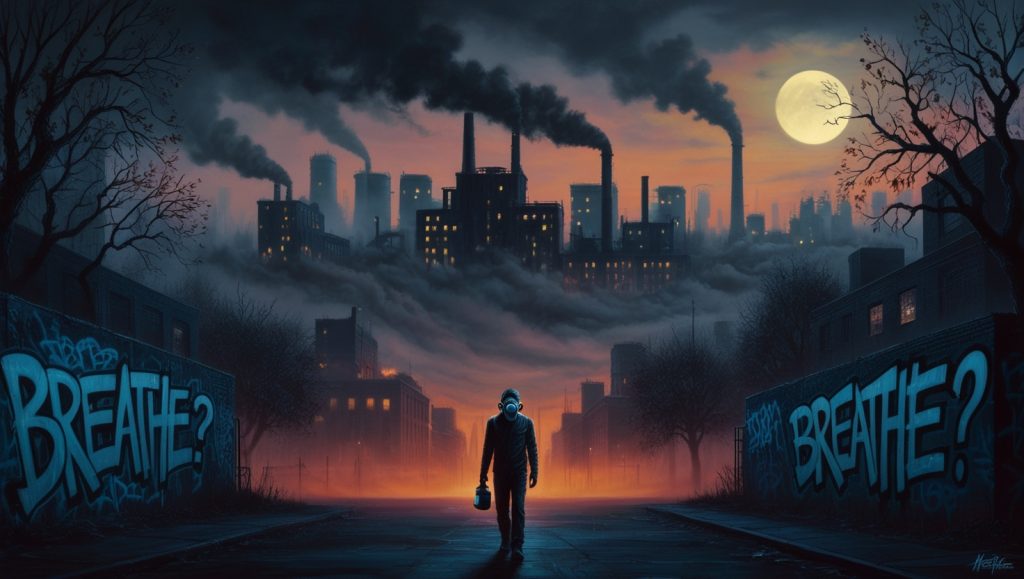Pollution is one of the most significant threats to biodiversity, affecting ecosystems worldwide and disrupting the delicate balance of life on Earth. This article explores the various ways pollution impacts wildlife and natural habitats, emphasizing the urgent need for action to mitigate these harmful effects.

Understanding Pollution’s Impact on Biodiversity
Pollution comes in many forms—air, water, soil, and noise—all of which contribute uniquely to biodiversity loss. The introduction of harmful substances into the environment disrupts ecosystems, leading to species decline, habitat destruction, and changes in ecological balance.
Types of Pollution Affecting Biodiversity
Air Pollution:
Airborne pollutants like sulfur dioxide and nitrogen oxides can cause acid rain, which harms forests and aquatic ecosystems. Acidification alters soil chemistry, reducing nutrient availability for plants and leading to a decline in species dependent on these habitats.
Particulate matter in the air can block sunlight, hindering photosynthesis in plants, stunting their growth, and affecting herbivores that rely on these plants for food.
Water Pollution:
Contaminants from agricultural runoff, industrial waste, and plastic debris have severe impacts on freshwater and marine ecosystems. Excessive nutrients in water bodies can lead to eutrophication, resulting in harmful algal blooms that deplete oxygen levels. This creates “dead zones” where aquatic life cannot survive.
Pollutants also bioaccumulate through the food chain, posing serious health risks to top predators, such as orcas, which are particularly vulnerable to chemical toxins.
Soil Pollution:
Heavy metals, pesticides, and other toxic substances degrade soil quality, affecting plant health and reducing biodiversity. Contaminated soil can result in lower crop yields and threaten the variety of species in agricultural systems.
Noise Pollution:
Elevated noise levels interfere with the communication of wildlife, especially species that rely on sound for mating, hunting, or navigation. This disruption can lead to reduced reproductive success and altered behaviors in affected species.
The Ripple Effect on Ecosystems
Pollution doesn’t just harm individual species—it disrupts entire ecosystems. The loss of even a single species can have cascading effects on food webs and ecological relationships:
- Habitat Loss: Pollution can degrade habitats, making it harder for species to find food, reproduce, or shelter. Wetlands, for example, are highly sensitive to pollution, and their degradation threatens numerous bird species that rely on them for breeding.
- Altered Ecological Relationships: Changes in species populations due to pollution can disrupt predator-prey dynamics and competitive relationships. For instance, a decline in fish populations caused by water pollution affects bird species that rely on fish as their primary food source.
Addressing Pollution for Biodiversity Conservation
To combat the impact of pollution on biodiversity, a multifaceted approach is necessary:
- Regulatory Measures: Enforcing strict regulations on emissions, waste disposal, and industrial practices is vital to reducing pollutants in ecosystems.
- Public Awareness Campaigns: Educating communities about the effects of pollution can inspire grassroots efforts and foster conservation practices.
- Sustainable Practices: Promoting sustainable agriculture, such as reducing chemical use and limiting runoff, helps to protect biodiversity.
- Restoration Projects: Supporting and investing in habitat restoration initiatives can rehabilitate polluted or degraded ecosystems, providing a haven for wildlife.
Conclusion
The impact of pollution on biodiversity is extensive and far-reaching. As human activities continue to introduce harmful substances into the environment, the need for immediate action grows more urgent. By understanding the link between pollution and biodiversity loss, we can take meaningful steps toward preserving the natural world’s rich diversity of life.
Call to Action
Join the fight against pollution! Support local conservation initiatives, advocate for sustainable practices, and stay informed about environmental issues impacting your community. Together, we can make a lasting difference in preserving biodiversity for future generations.
